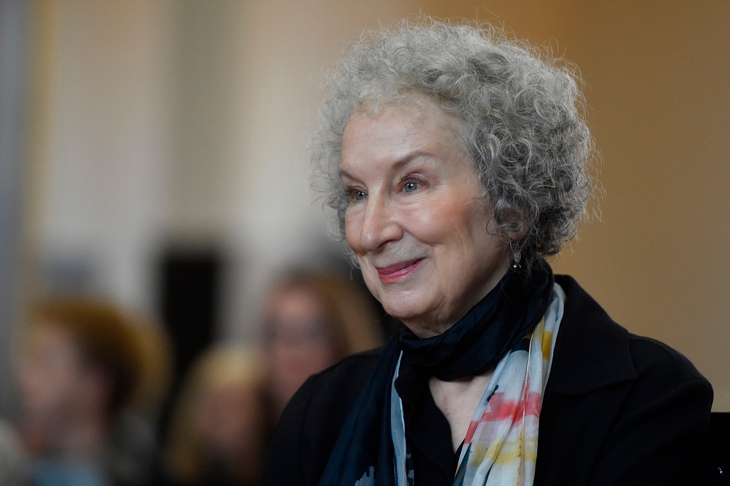It’s here, at last: the backlash against #MeToo. Finally people are sticking their heads above the parapet and asking if perhaps #MeToo has gone too far. They’re braving the inevitable fusillade of shaming tweets and accusations of ‘rape apologism’ to raise awkward questions about this hashtag movement. They’re wondering out loud if this movement that started life with the noble goal of exposing male abuse of women has now become too trigger-happy, too keen to demolish men on the basis of accusation alone, and too happy to go along with a view of women as fragile creatures in need of chaperoning. #MeToo’s dissenters have arrived, and about time too.
The niggling questions about #MeToo that critically minded women like Christina Hoff Sommers and Lionel Shriver have been raising for weeks now have exploded into the mainstream in recent days. The queen of cinema, Catherine Deneuve, and a hundred of her fellow Frenchwomen sent the stiff Anglosphere into a tizz last week with their letter slamming #MeToo as a drab, sexless moral panic. #MeToo has a whiff of ‘puritanism’ to it, they said, and is giving rise to sinister ‘denunciations’ of men, sometimes for little more than clumsy come-ons. Of course rape is a serious crime, the letter said, but ‘trying to seduce someone, even persistently or clumsily’, is not. Men must have a ‘right to hit on women’, the French rebels said. (Under severe pressure, Deneuve has now backtracked somewhat.)
Liam Neeson delivered the follow-up blow. In an interview on Irish TV on Friday, he said there are ‘healthy’ elements to #MeToo, but it has also become ‘a bit of a witch-hunt’. Men are being cast out of the entertainment world on the basis of mere accusation, he said: ‘There’s some people, famous people, being suddenly accused of touching some girl’s knee or something and suddenly they’re being dropped from their programme.’ He echoes American actor Jeremy Piven, who has been accused of sexual misconduct (he denies all the allegations). Piven says, ‘We seem to be entering dark times — allegations are being printed as facts and lives are being put in jeopardy without a hearing, due process or evidence.’
He’s not wrong. But if you won’t listen to Piven, perhaps you will listen to Margaret Atwood. At the weekend, she raised some stingingly critical questions about #MeToo, and hers might prove to be the most decisive intervention yet. In a piece for the Globe & Mail, Atwood defended herself against accusations that she is a ‘bad feminist’ after she expressed support for Steven Galloway, a former professor of creative writing at the University of British Columbia who was unceremoniously dumped following an accusation of sexual assault — an accusation that later proved to be unfounded. He had been treated as ‘guilty because accused’, said Atwood.
She then turned her attentions to the #MeToo movement. It is wrong for this movement to treat women as always truthful and pure creatures, she said. In truth, women ‘are human beings, with the full range of saintly and demonic behaviours this entails, including criminal ones’. Atwood’s take on women strikes me as far more feminist, far more respectful of women, than the infantilising #MeToo idea that women never lie and must always be believed. She then laid into ‘vigilante justice’, where someone becomes ‘guilty because accused’, and noted that every time this happened in history — in Salem, the USSR, Red China — it has ended horrendously.
Atwood is right to call out the excesses of #MeToo. The American left-libertarian writer Wendy Kaminer called it ‘vigilante feminism’ in a piece for the Boston Globe recently. We have seen much vigilante feminism in recent months, as famous men have lost jobs, been erased from TV shows or found themselves expelled from polite society on the basis of one or two accusations, some made anonymously, most made on social media. Is this really how we want society to work? Where an individual can be crushed by the point of a finger? Due process is the thing that separates a civilised society from an uncivilised one, guaranteeing individuals that they will never be destroyed by flimsy claims or mob terror: do we really want to ditch this civilising principle for the shallow pay-off of seeing Hollywood men taken down a peg or two?
Atwood’s intervention is key because she is the literary heroine of many modern feminists, who greatly admire her novel The Handmaid’s Tale. That novel tells of a dystopian world in which women have been reduced to physical chattel, absolved of their independence and discouraged from using their critical faculties so that they can breed, and please men. And now, Atwood has turned around and implied that if anyone is creating dystopian conditions today, it is those who would discard due process to the end of visiting vengeance upon certain men. This must feel devastating to the leaders of #MeToo, but it is a deserved blow: they have allowed their movement to spin out of control, and to nurture a climate of accusation, denunciation and casting-out that feels increasingly McCarthyite.
All of these dissenters — Deneuve, Neeson, Atwood and others — have been subjected to intense invective for daring to criticise #MeToo. This, too, is revealing. That those who merely question the #MeToo movement can be publicly denounced as apologists for rapacious behaviour — that is, as being in concert with the devil — further confirms that this supposed campaign for justice now grates against justice, and reason, and freedom. ‘Time’s Up’ is the name of the latest initiative of #MeToo’s leaders; let’s hope the time is up for vigilante feminism and the extrajudicial destruction of individuals.







Comments